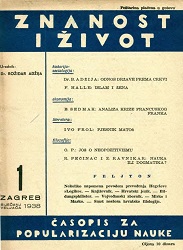
Još o neopozitivizmu kod nas
article from iussue 1/1938 of the journal »ŽIVOT. ČASOPIS ZAPOPULARIZACIJU NAUKE«, there pp. 37 to 51
More...We kindly inform you that, as long as the subject affiliation of our 300.000+ articles is in progress, you might get unsufficient or no results on your third level or second level search. In this case, please broaden your search criteria.

article from iussue 1/1938 of the journal »ŽIVOT. ČASOPIS ZAPOPULARIZACIJU NAUKE«, there pp. 37 to 51
More...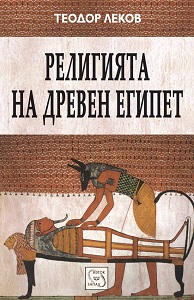
The book studies the Ancient Egyptian religion. The author describes the creation and its driving forces through the view of Egyptian concepts. The idea of God and the divine manifestations, the place of man in the world and the ways to achieve immortality are explored. The exposition is based on the study of ancient hieroglyphic texts and is illustrated with numerous examples. The book is intended for a wide range of readers who are interested in the religion and culture of Ancient Egypt. It contains three chapters: the world of gods, the creation of the world and the world of men. Special attention is paid on the concept of the kingship in Ancient Egypt. The Egyptian terminology and the names of gods and goddesses are formed as a dictionary at the еnd of the book.
More...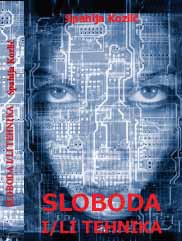
The frame of potential interpretations of humanity in the current century, the century which opens new dimensions of socializing in the form of virtual relations – as it is provided by world wide web, encapsulates substantial theoretical flexibility as well as a broad historical and philosophical elaboration of the early Greek notion – techne. On the other hand, answers to these questions are not reduced to philosophical self-pity, lamentations and shyness of speculation or “technoblasphemous” reasoning, nor to technical fascination with “greatness”, which has been present in positivistic philosophy from the modern age and expressed in diverse aspects of the same positivistic philosophy. The complexity of answers to the above mentioned dilemma is deepened by the fact that the twentieth century radically redirected the technical dexterity of the governing over nature to the space of the broad spectrum of social relations. There is abundance of illustrations of such cybernetic intentions of social movements at the end of the twentieth and at the beginning of the twenty first century. Such illustrations are rooted in the ever-increasing conviction in the indispensability of the meaningful, technocatricly arranged society which is bereft of all forms of individual decisions - having in mind that such decisions are let to the groups of experts which inevitably eliminates individuals of the social responsibility. The scientific era, as the most common term of the contemporary technical and cybernetic expansion, is featured by the rule over nature which is substantially different from the previous era in the way that new challenge is enabled, namely the challenge in which techne is no more only Aristotelian potential of tailoring the forms which nature implies, but much more the establishment of the artificial reality, which is against nature implying mythification of science inspired by technocatric negligence in the form of dogmatic theories of the society of knowledge.
More...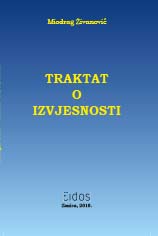
Po svemu sudeći, forma traktata zahtijeva, odmah na početku, jedan kratak komentar ili objašnjenje, koje se tiče tzv. unutrašnje arhitekture ovog doista specifičnog oblika i-spisa ili o-pisa različtih tema i problema. Čini se da je u pravu Walter Benjamin kada je svojevremeno u jednom pasažu svoje znamenite „Jednosmjerne ulice“, zapisao: Traktat je arapska forma. Po spoljašnjem izgledu je neuredan i neupadljiv; nalik je tako fasadama arapskih zdanja čija organizacija počinje tek u dvorištu. Ni organizovana struktura traktata ne može se spolja primetiti nego se otkriva tek iznutra. Kada je sastavljen u poglavljaima, ona nemaju svoje verbalne naslove nego su označena brojkama. Površ njegovih rasprava nije obojena živopisno, već je štaviše, prekrivena ornamentalnim prepletima čije se vijuganje nigde ne prekida. U ornamentalnoj gustini takvog načina izlaganja, poništava se razlika između tematskih izvođenja i digresija.“ (W. Benjamin, Izabrana dela 1, JP Službeni glasnik, Beograd, 2011, u sjajnom prevodu Jovice Aćina).
More...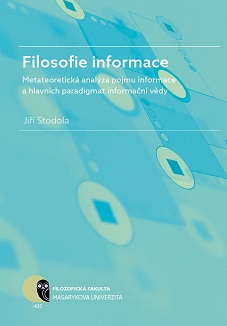
This monograph is mostly linked to the field currently known as philosophy of information (PI). The monograph aims firstly at bringing in certain metatheoretical assumptions which underlie the definitions of information and the paradigms of information science. Secondly, the monograph intends to bring more light into the area of information and the transdisciplinary character of information science. The third goal of the monograph is to suggest an information science approach that is rooted in valid results of metatheoretical researches. Among these researches, three goals are targeted – defining the information in the context of 1. epistemology, 2. metaphysics and 3. creating a domain model that includes the process of information production, all this by means of functional synthesis of three key information science paradigms.
More...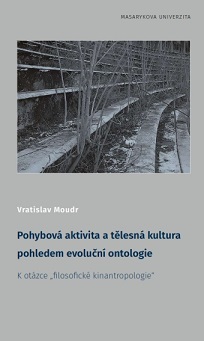
Evolutionary ontology claims that culture as an open dynamic system destructs system of nature (biosphere) which is wider and older than culture. Culture must gain its energy, space and matter only through destruction and destabilisation of biosphere. The very existence of humankind (and of culture too) is threatened by successful evolution of sociocultural system. Personal activity of man so can be seen as participation on escatation of conflict between nature and culture. The flow of energy, matter and information is just mediated by human aktivity. Therefore we can understand to intentional activities of man in culture as artificial culturaly oriented processes, which are components of “autopoietic” metabolism of culture that is now highly destructive for nature and society. Aim of this monograph is thus present evolutionary ontology as fruitful theoretical point of view in the field of philosophy of sport. Author reflects on activities of man and its distinctive forms – physical training and sport exercising. He analyzes sociocultural system of physical culture, searchs for its function (identity) and its relations to culture, nature and human. Text is focused mainly on sociocultural orientation of human activities. Its autor also outlines where these activities should be oriented from the evolutionary ontological point of view.
More...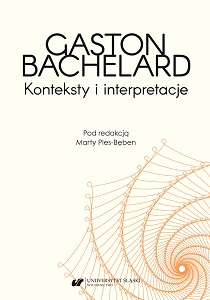
The purpose of the book is to present a selection of studies on Bachelard’s philosophy published by researchers from various countries as part of the Bachelardian and post-Bachelardian movement, and to include articles by Polish Bachelard researchers. It cannot be said that Bachelard remains unknown in Poland, but still many important works – by Bachelard himself and other researchers commenting on his philosophy or continuing it – are known only to specialists. The book Gaston Bachelard. Contexts and Interpretations wants to fill this gap, while pointing to the presence of Polish research on Bachelardism. // The intention of this volume is to compile articles confirming the complexity of Gaston Bachelard’s philosophy and its relevance. The multitude of new readings of Bachelard’s thought, appearing in Poland and abroad, confirms that both the philosophy of science, with the concepts of new scientific mind, new rationality or epistemological obstacles introduced by Bachelard, as well as his philosophy of imagination seeking a method that adequately captures the essence of dream and image, invariably serve as an important reference point for philosophers and representatives of other scientific disciplines.
More...






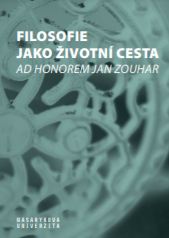
The collection of papers Philosophy as a Life Journey was published in honour of Jan Zouhar, a distinguished professor, an expert in the history of Czech philosophy and an organizer of university life. The volume begins with an interview in which Professor Zouhar outlines his philosophical creed. The core of the collection comprises six personal contributions (Laudationes) and sixteen original scientific works that focus on a wide range of issues related to philosophy, history, literature, language, ethnography and culture. The final part of the volume (Appendices) contains a brief curriculum vitae of Professor Zouhar and a selection of his works and photographs followed by a list of volume contributors.
More...
The volume deals with the phenomenon of the culture and praxis of literature citation cultivated in scientific communities. It constitutes a presentation of the authors’ research results, in particular the issues that fully encapsulate the subject of the life cycles of scientific publications and the process of the aging of literature, discussed against the background of the current state of research presented in world literature. A broad selection of world literature on the subject (especially Anglophone literature) dealing with issues crucial from the point of view of the aim and subject of the presented work, the origins of which date back to the 1920s, constitutes the research material or, in other words, the empirical base for all the analyses undertaken and presented in this monograph,. The method adopted in this monograph for the development of the available research material was, first of all, its detailed analysis, with the aim of isolating certain leading research trends present in the discussed world literature, then proposing their typology, uncovering the most significant and fundamental theses, statements and results proposed within their scope, and then synthesizing the results obtained during the analysis and presenting them in the form of the final summary and conclusions.
More...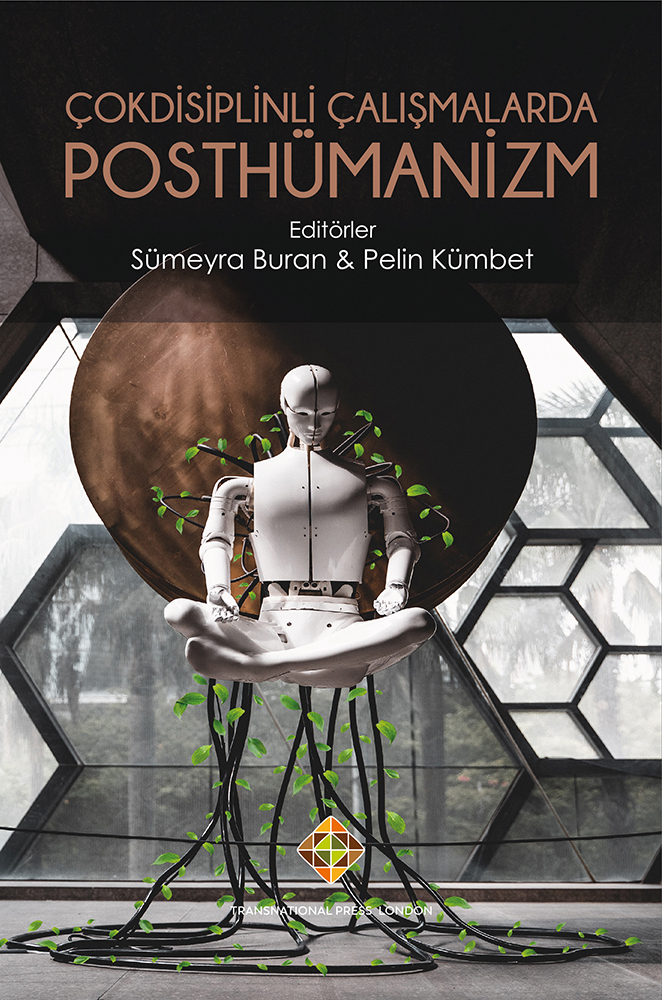
Yapay zekâ teknolojilerinin sağlıktan eğitime, bankacılıktan sigortaya kadar çeşitli sektörlerde uygulanması, dünyayı deneyimleme şeklimizi değiştirdi. Dünya ekonomisinin kapitalizm sonrası eğilimleri, hükümetleri ve şirketleri yapay zekâ sektörüne yatırım yapmak için çekmeye devam ederken meselenin etik boyutu da gündemi işgal ediyor. Yapay zekânın muazzam potansiyeli, bilim insanlarını ve benzer şekilde filozofları konuya çeşitli açılardan bakmaya davet ediyor. Bir yandan, yapay zekâ ile ilgili felsefi tartışma, insan bilinci ve rasyonalite hakkındaki eski sorulara yeni cevaplar sunmanın yanı sıra yeni soruları da ortaya çıkarmaktadır (Copeland 1993; Dennett 1997). Öte yandan, transhümanizm ve tekillik ile ilişkili görüşler (Kurzweil 2015; Chalmers 2016) eleştirilere ve kıyamet senaryolarına yol açmaktadır (Bostrom 2014; Berardi 2017). Sunulan yaklaşımlar Aydınlan-ma (Horkheimer ve Adorno 2002) teknoloji (Heidegger 1997), teknoloji toplumu (Ellul) veya insan rasyonalitesinin tek boyutluluğu (Marcuse 1996) hakkındaki eleştirileri hatırlatmaktadır.
More...
Transhümanizm ve posthümanizm insanın şu andaki halinden farklılaşacağını, bir tür evrimleşmenin meydana geleceğini iddia etmektedir. Bu evrimleşmenin ise aşamalı olacağı, transhümanizmin sonunda, kaçınılmaz olarak, posthümanizme ulaşacağı bazı transhümanistlerce iddia edilmektedir (Ferrando 2013). Aşağıda örneklerle açıklandığı üzere, söz konusu değişimin anahtarı ise biyoteknolojidir. Biyoteknoloji; bilim ve teknolojinin, insan üzerindeki uygulamalarının birleşme noktası olarak kabul edilebilir (Ferrando 2013).
More...